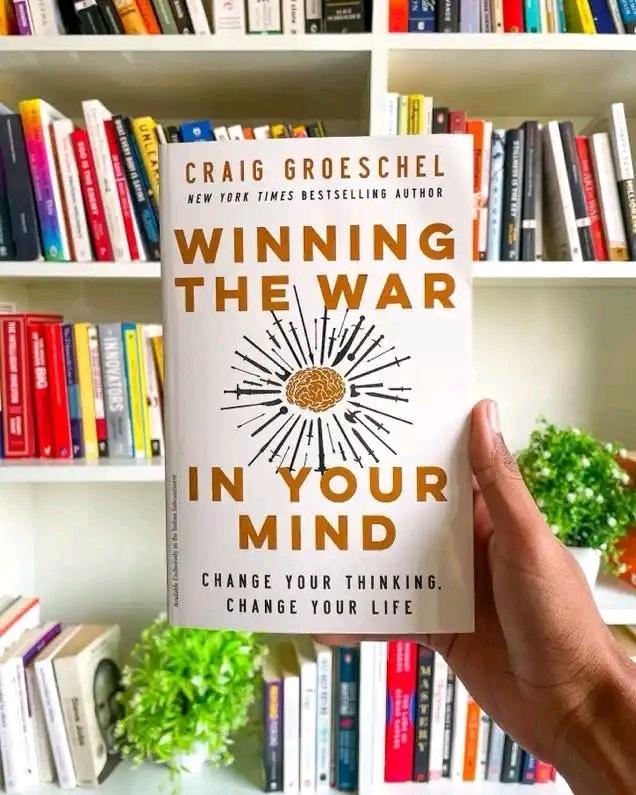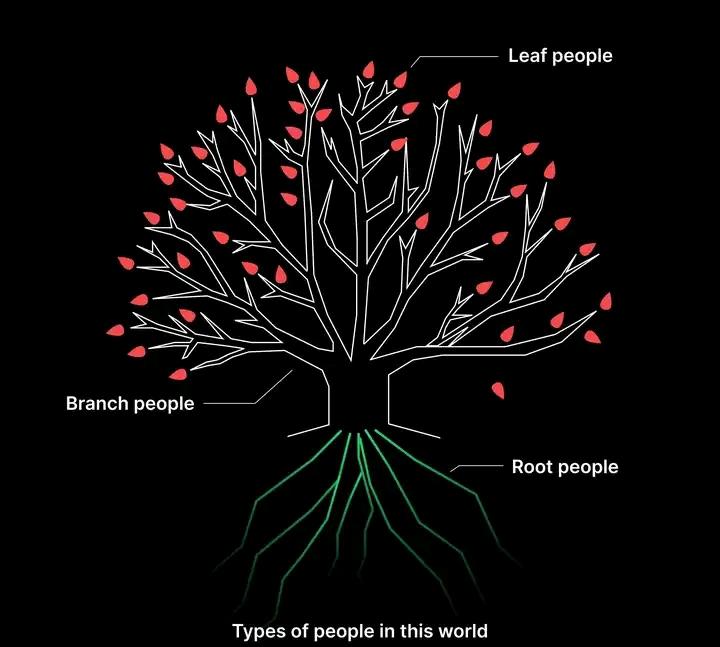"Winning the War in Your Mind" by Craig Groeschel is a book that delves into strategies for overcoming negative thought patterns and cultivating a positive mindset.
Here are ten lessons from the book:
1. Recognize the Power of Your Thoughts: Understand that your thoughts have a profound impact on your emotions, behaviors, and overall well-being. By becoming aware of your thought patterns, you can begin to take control of your mind.
2. Challenge Negative Thinking: Learn to identify and challenge negative thoughts that contribute to self-doubt, anxiety, and other mental health challenges. Replace negative thoughts with positive affirmations and truths.
3. Guard Your Mind: Be intentional about what you allow into your mind, including media, social influences, and internal dialogue. Guarding your mind against negativity and toxic influences is essential for maintaining mental and emotional health.
4. Practice Mindfulness: Cultivate mindfulness through practices such as meditation, deep breathing, and journaling. Being present in the moment can help you gain perspective, reduce stress, and foster a greater sense of peace.
5. Choose Your Focus: Focus on what you can control and influence rather than dwelling on things beyond your control. Redirect your attention towards positive thoughts, goals, and actions that align with your values.
6. Develop Resilience: Build resilience by embracing challenges as opportunities for growth and learning. Adopting a resilient mindset enables you to bounce back from setbacks and persevere in the face of adversity.
7. Seek Support and Community: Surround yourself with supportive relationships and community. Share your struggles with trusted friends, family members, or mentors who can provide encouragement, accountability, and perspective.
8. Practice Self-Compassion: Be kind to yourself and practice self-compassion during difficult times. Treat yourself with the same empathy and understanding that you would offer to a friend facing similar challenges.
9. Set Healthy Boundaries: Establish and maintain healthy boundaries in your relationships and commitments. Prioritize self-care and protect your mental and emotional well-being by setting limits on your time, energy, and resources.
10. Cultivate Gratitude and Optimism: Foster an attitude of gratitude and optimism by focusing on the blessings in your life. Cultivating gratitude shifts your perspective towards abundance and opens your heart to joy and contentment.
These lessons from "Winning the War in Your Mind" offer practical strategies and insights for overcoming negative thinking, building resilience, and cultivating a positive mindset. By applying these principles, you can transform your thinking patterns and experience greater mental and emotional well-being.
Here are ten lessons from the book:
1. Recognize the Power of Your Thoughts: Understand that your thoughts have a profound impact on your emotions, behaviors, and overall well-being. By becoming aware of your thought patterns, you can begin to take control of your mind.
2. Challenge Negative Thinking: Learn to identify and challenge negative thoughts that contribute to self-doubt, anxiety, and other mental health challenges. Replace negative thoughts with positive affirmations and truths.
3. Guard Your Mind: Be intentional about what you allow into your mind, including media, social influences, and internal dialogue. Guarding your mind against negativity and toxic influences is essential for maintaining mental and emotional health.
4. Practice Mindfulness: Cultivate mindfulness through practices such as meditation, deep breathing, and journaling. Being present in the moment can help you gain perspective, reduce stress, and foster a greater sense of peace.
5. Choose Your Focus: Focus on what you can control and influence rather than dwelling on things beyond your control. Redirect your attention towards positive thoughts, goals, and actions that align with your values.
6. Develop Resilience: Build resilience by embracing challenges as opportunities for growth and learning. Adopting a resilient mindset enables you to bounce back from setbacks and persevere in the face of adversity.
7. Seek Support and Community: Surround yourself with supportive relationships and community. Share your struggles with trusted friends, family members, or mentors who can provide encouragement, accountability, and perspective.
8. Practice Self-Compassion: Be kind to yourself and practice self-compassion during difficult times. Treat yourself with the same empathy and understanding that you would offer to a friend facing similar challenges.
9. Set Healthy Boundaries: Establish and maintain healthy boundaries in your relationships and commitments. Prioritize self-care and protect your mental and emotional well-being by setting limits on your time, energy, and resources.
10. Cultivate Gratitude and Optimism: Foster an attitude of gratitude and optimism by focusing on the blessings in your life. Cultivating gratitude shifts your perspective towards abundance and opens your heart to joy and contentment.
These lessons from "Winning the War in Your Mind" offer practical strategies and insights for overcoming negative thinking, building resilience, and cultivating a positive mindset. By applying these principles, you can transform your thinking patterns and experience greater mental and emotional well-being.
"Winning the War in Your Mind" by Craig Groeschel is a book that delves into strategies for overcoming negative thought patterns and cultivating a positive mindset.
Here are ten lessons from the book:
1. Recognize the Power of Your Thoughts: Understand that your thoughts have a profound impact on your emotions, behaviors, and overall well-being. By becoming aware of your thought patterns, you can begin to take control of your mind.
2. Challenge Negative Thinking: Learn to identify and challenge negative thoughts that contribute to self-doubt, anxiety, and other mental health challenges. Replace negative thoughts with positive affirmations and truths.
3. Guard Your Mind: Be intentional about what you allow into your mind, including media, social influences, and internal dialogue. Guarding your mind against negativity and toxic influences is essential for maintaining mental and emotional health.
4. Practice Mindfulness: Cultivate mindfulness through practices such as meditation, deep breathing, and journaling. Being present in the moment can help you gain perspective, reduce stress, and foster a greater sense of peace.
5. Choose Your Focus: Focus on what you can control and influence rather than dwelling on things beyond your control. Redirect your attention towards positive thoughts, goals, and actions that align with your values.
6. Develop Resilience: Build resilience by embracing challenges as opportunities for growth and learning. Adopting a resilient mindset enables you to bounce back from setbacks and persevere in the face of adversity.
7. Seek Support and Community: Surround yourself with supportive relationships and community. Share your struggles with trusted friends, family members, or mentors who can provide encouragement, accountability, and perspective.
8. Practice Self-Compassion: Be kind to yourself and practice self-compassion during difficult times. Treat yourself with the same empathy and understanding that you would offer to a friend facing similar challenges.
9. Set Healthy Boundaries: Establish and maintain healthy boundaries in your relationships and commitments. Prioritize self-care and protect your mental and emotional well-being by setting limits on your time, energy, and resources.
10. Cultivate Gratitude and Optimism: Foster an attitude of gratitude and optimism by focusing on the blessings in your life. Cultivating gratitude shifts your perspective towards abundance and opens your heart to joy and contentment.
These lessons from "Winning the War in Your Mind" offer practical strategies and insights for overcoming negative thinking, building resilience, and cultivating a positive mindset. By applying these principles, you can transform your thinking patterns and experience greater mental and emotional well-being.


5 Comentários
·3K Visualizações















